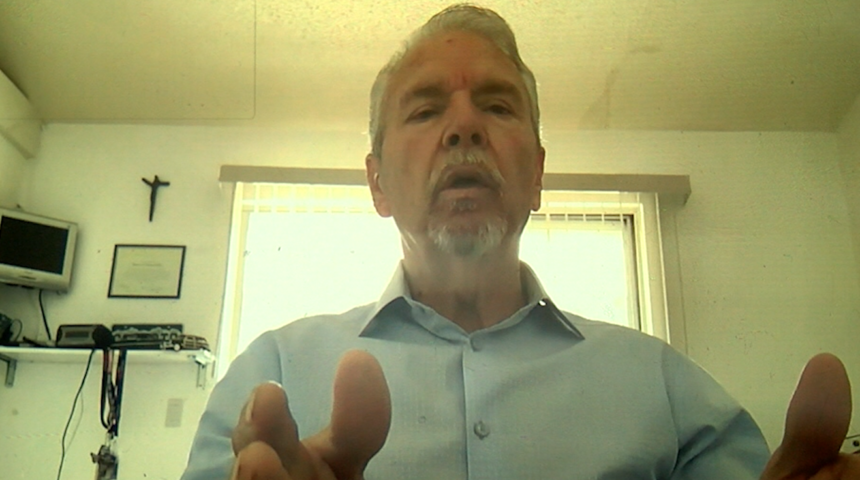County judge has differing views from governor, mayor as El Paso continues to reopen

EL PASO, Texas -- Is El Paso really ready to continue reopening? State and local officials seem to disagree on that answer.
Texas Gov. Greg Abbott gave El Paso County and the Amarillo area — two of the state's biggest recent Covid-19 hot spots — a temporary reprieve from implementing Texas' next phase of reopening.
But on Friday, both El Paso and Amarillo were required to implement the newest phase of reopening that took effect in the rest of the state one week prior.
While County Judge Ricardo Samaniego didn't think El Paso was ready to take the next step, the governor declined to give El Paso any further extension.
As Samaniego visited coronavirus testing sites around the county last week, he said he came away encouraged at the progress made to ramp up testing amid a surge in new cases this month. But he added that some of the chatter he heard as he traveled around was troubling.
“We had eight deaths reported [Wednesday], and people were getting all excited about going to midnight opening of bars [Friday]. That sort of tells you the whole story right there,” Samaniego said.
Abbott traveled to Amarillo last week to declare that the area had "turned a corner" after state and federal response teams were dispatched to respond to an outbreak centered on local meatpacking plants.
But in El Paso County, Samaniego said there wasn't enough improvement to convince him the county was ready for the expanded opening, which now allows bars to operate at 25% capacity and allows water parks and shopping mall food courts to reopen at limited capacity.
On May 1, when some state restrictions were lifted, El Paso County had 961 positive coronavirus cases. By May 14, cases had risen 67%, to 1,607. On Saturday, the number of cases had reached 2,704 and deaths had grown to 78 — surpassing Bexar County, which has more than twice the population of El Paso.
“If that’s the case, then why wouldn’t we slow down the order?” Samaniego said.
Abbott's office said that testing in El Paso has increased by 40% since the state deployed National Guard members to ramp up the effort here, and the testing indicates a recent decrease in the city's positivity rate.
"Even with this significant ramp up in testing, the number of people testing positive and the positivity rate have declined," Abbott spokesman John Wittman. "Hospitalizations remain steady and hospital capacity remains available."
Samaniego and El Paso Mayor Dee Margo asked Abbott earlier this month to exclude the area from parts of his executive order that allowed certain businesses to operate at a greater capacity. Samaniego and other local leaders sent Abbott a letter May 8 asking that the exemption continue until the county saw a two-week downward trend of positive cases — the benchmark recommended by the U.S. Centers for Disease Control and Prevention.
Abbott granted the county a one-week delay and sent several state response teams of National Guard members to increase testing in El Paso. He also ordered a state epidemiology team to work with local health officials to identify and address hot spots in the area.
Margo said the situation in El Paso is more manageable now and he's encouraged that the county's positivity rate has dropped below the 10% threshold that would indicate a need for more restrictive measures to avoid becoming a hot spot, he said. That threshold was set by Dr. Deborah Birx, the White House coronavirus response director, Margo's office said.
When Abbott initially excluded El Paso, he said it was based on low hospital bed availability in the area which was “too close for comfort.” But Margo said that's no longer an issue — at least for now.
“The increase in positive cases is due to the increase in testing throughout the community,” Margo said. “The phased opening is based on hospital capacity, ICU beds, and ventilators. At this time, we have the capacity to meet the demand.”
The mayor added that he’ll remain in contact with the Abbott and Samaniego “to ensure El Paso has the resources necessary, not only for testing capacity but for the hospital capacity as well.”
"The bottom line is that the surge response teams are doing an effective job of responding to hot spots and mitigating further spread of Covid-19," Wittman said. "The people of El Paso and the workers on the front lines should be incredibly proud of these results.“
